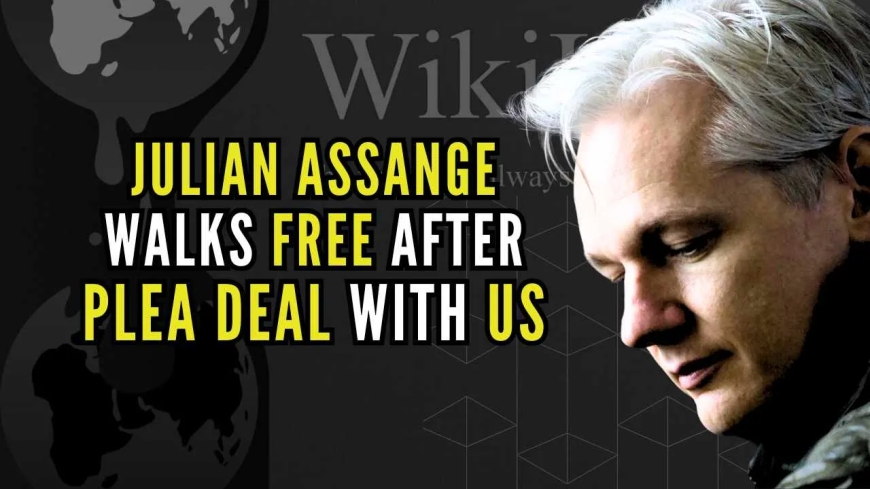The End of a Decade-Long Legal Battle for the WikiLeaks Founder

Julian Assange, the controversial founder of WikiLeaks, has returned home to Australia as a free man following a U.S. plea deal. This marks the conclusion of a protracted legal battle that spanned more than a decade, during which Assange faced charges related to the publication of classified U.S. military documents.
Assange's plane, closely tracked online by thousands, landed in Canberra at 7:37 p.m. local time (5:37 a.m. ET), according to Flightradar24. Upon arrival, he was greeted by his wife, Stella Assange, and his father, and he raised his clenched fist in a triumphant salute to his cheering supporters.
"Free at last," WikiLeaks declared in a post on X, reflecting the relief of Assange's supporters worldwide.
Assange, 52, was flown from Britain to the Northern Mariana Islands, a U.S. commonwealth north of Guam. There, he pleaded guilty under the U.S. Espionage Act to a single criminal count of conspiracy to obtain and disclose national defense information. The plea deal saw him sentenced to time served, totaling 62 months, which he had already spent in a British prison.
At the U.S. federal court in Saipan, Assange stated, "I believe the First Amendment and the Espionage Act are in contradiction with each other, but I accept that it would be difficult to win such a case given all these circumstances."
Journey to Freedom
Following the court proceedings, Assange flew approximately 3,400 miles south to Australia. His wife, Stella, expressed her mixed emotions of elation and exhaustion, sharing her nervous excitement about reuniting with her husband after years of separation.
Australian Prime Minister Anthony Albanese, who had long advocated for Assange's return, praised the resolution of the case, saying, "We wanted him brought home. Tonight that has happened. This is a culmination of careful, patient, and determined advocacy."
Legal and Financial Hurdles
Assange's journey home came at a significant financial cost. He was required to travel via a chartered plane and now owes the Australian government $520,000 for the flight expenses. A crowdfunding campaign has raised almost $400,000 to help cover these costs.
Despite his guilty plea, Assange and his supporters continue to argue that his actions were in the public interest. Barry Pollack, Assange's U.S. attorney, emphasized that Assange should never have been charged, stating, "Mr. Assange revealed truthful, important, and newsworthy information, including revealing that the United States had committed war crimes."
Historical Context
Assange’s legal troubles began in 2010 when he was arrested in London at the request of Sweden over sexual assault allegations. He sought asylum in the Ecuadorean Embassy in London in 2012, where he remained until his arrest in 2019. After the embassy revoked his asylum, Assange was imprisoned in the high-security Belmarsh prison in London, fighting U.S. extradition.
The U.S. Justice Department’s 2019 indictment charged Assange with 17 counts of espionage and one count of computer misuse, labeling the leak of classified information as one of the largest compromises in U.S. history. Following his guilty plea, the Justice Department reiterated that Assange's actions had created a grave risk to human lives.
Future Prospects
Assange's family and supporters are now seeking a U.S. presidential pardon, arguing that the prosecution sets a dangerous precedent for journalists. Meanwhile, Assange is focusing on reuniting with his family, including his two sons, whom he fathered while residing in the Ecuadorean Embassy.
Stella Assange described the family's joy in a livestream before his arrival, saying, "They are bouncing around like two little balls jumping on the sofa. They are very, very excited."
Assange’s return to Australia marks a new chapter for the WikiLeaks founder, concluding a long saga fraught with legal and diplomatic battles and reigniting debates on press freedom and national security.













































